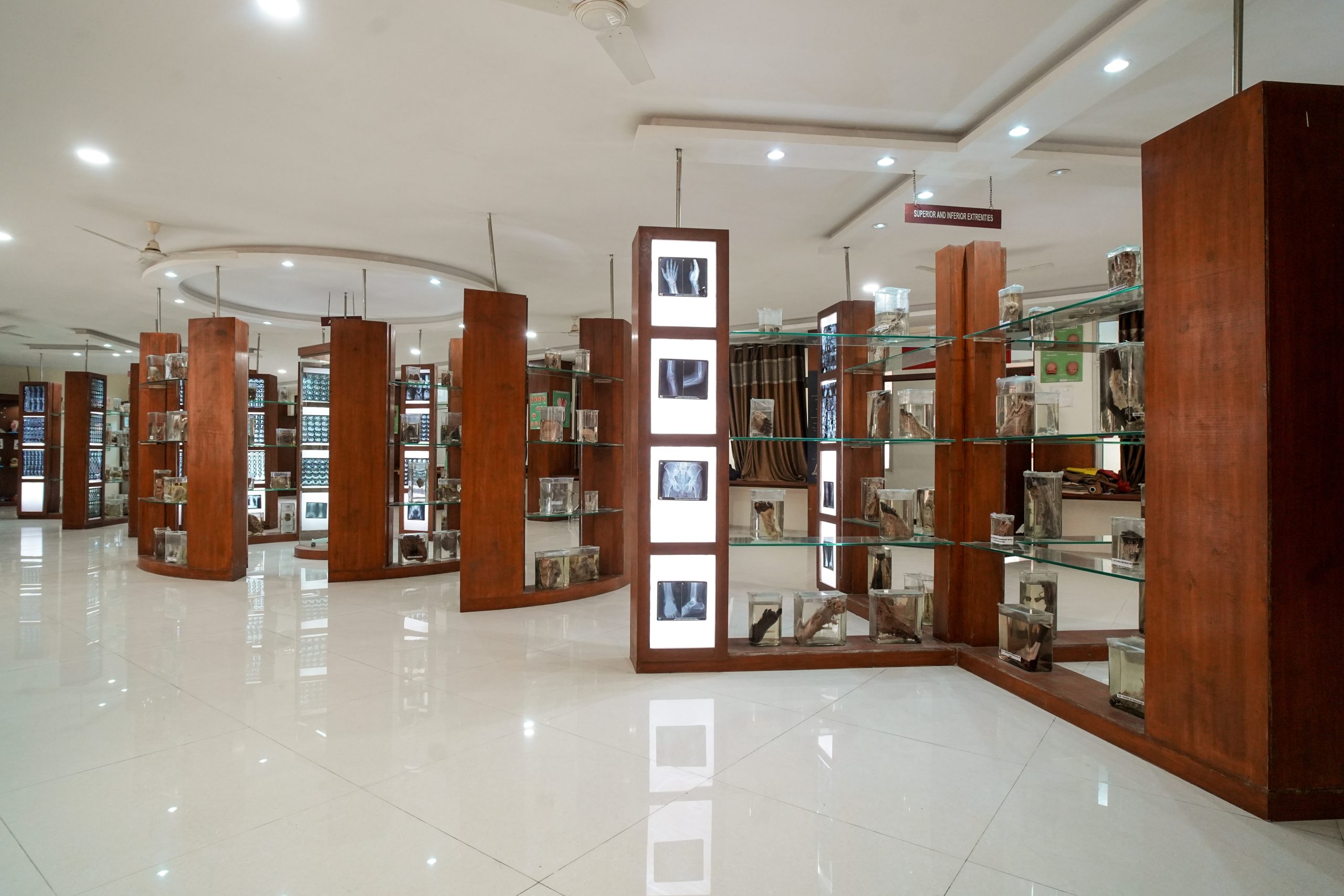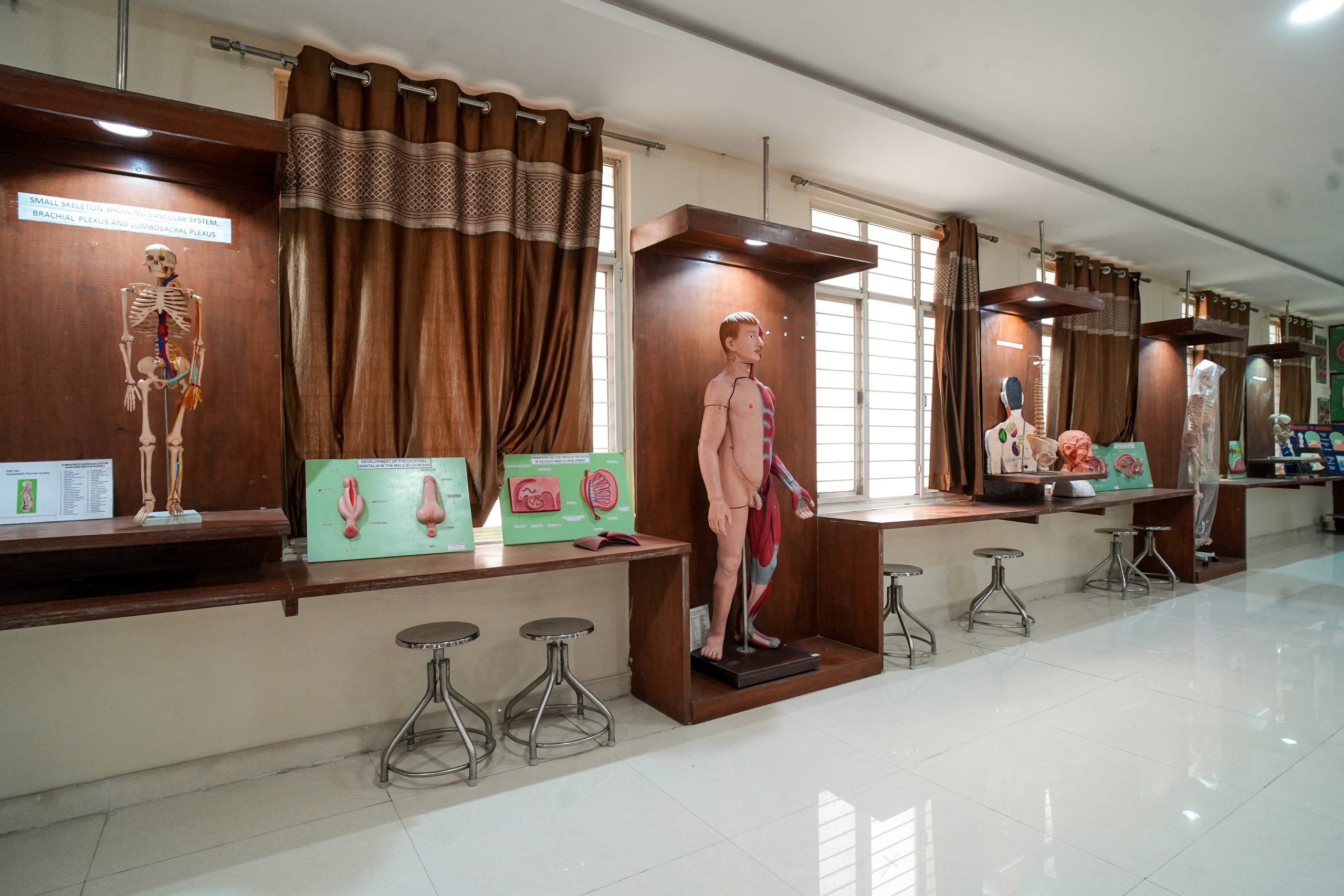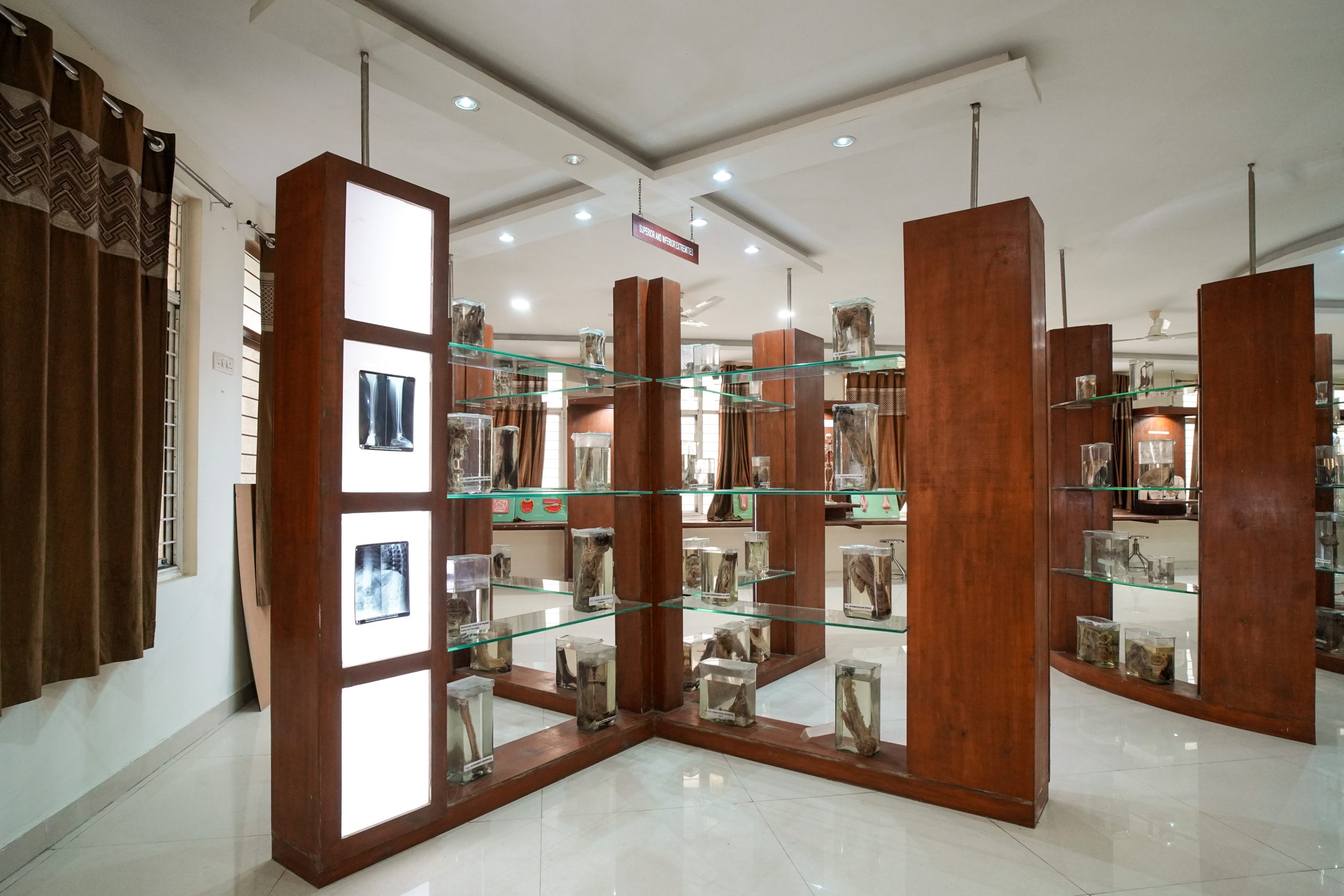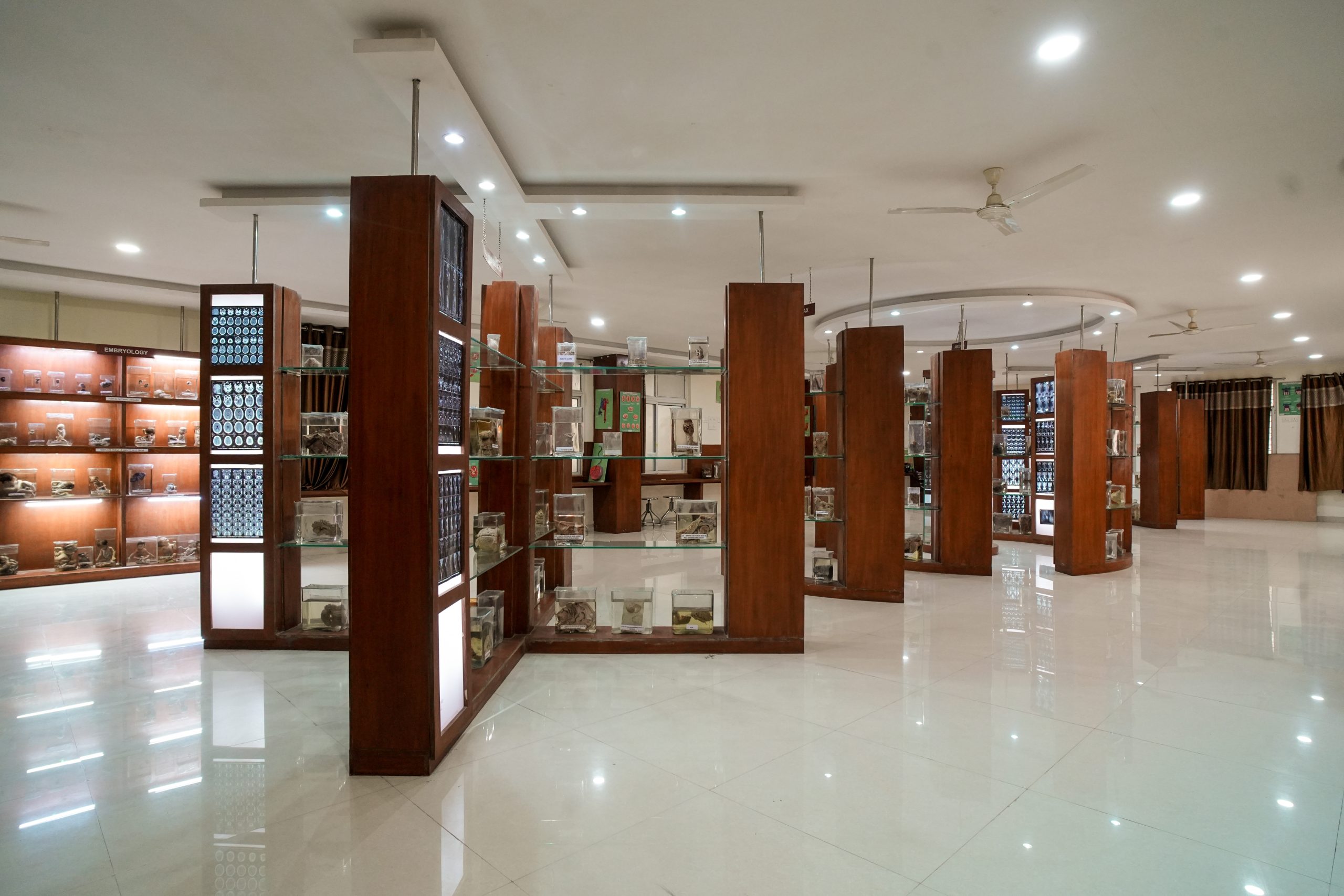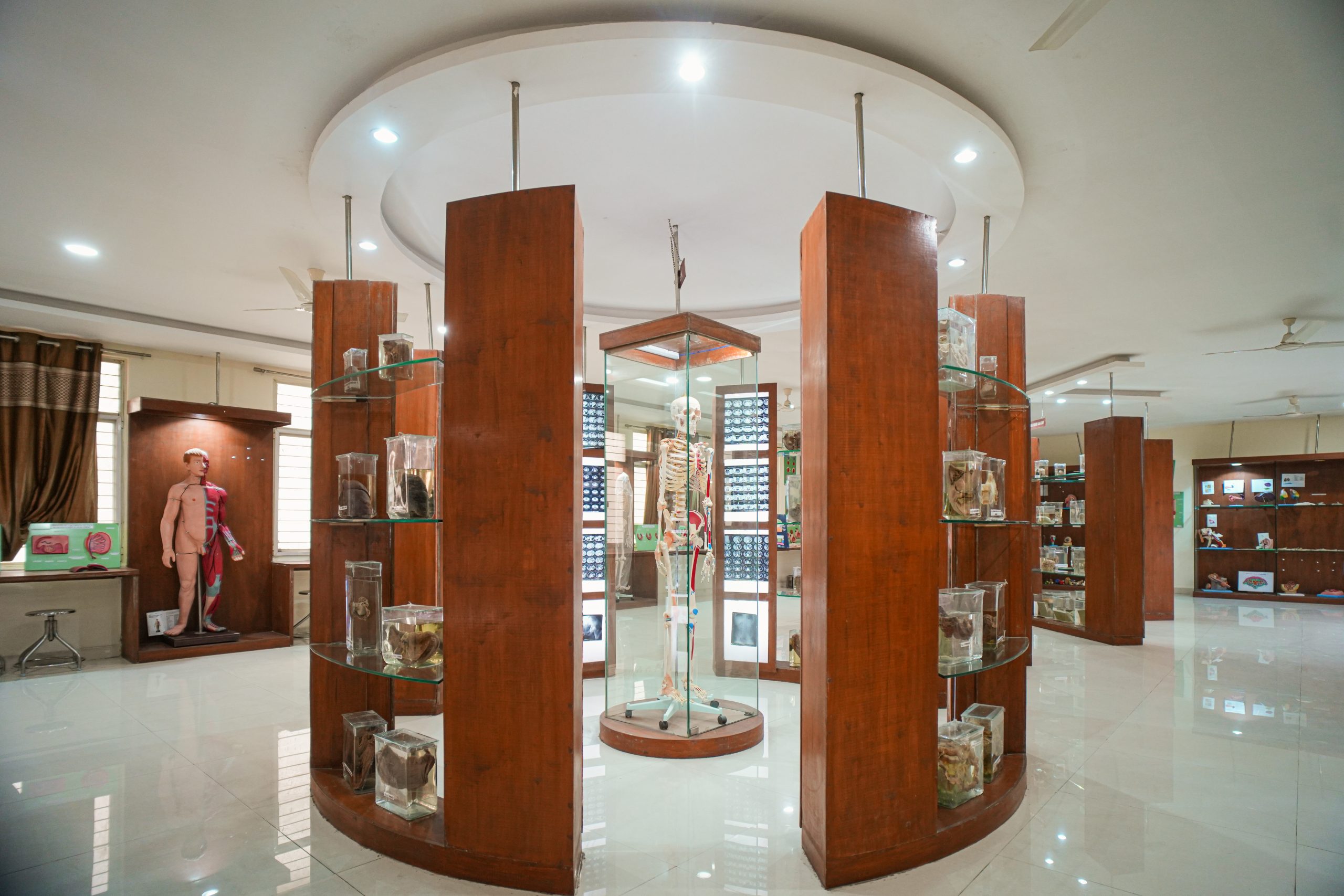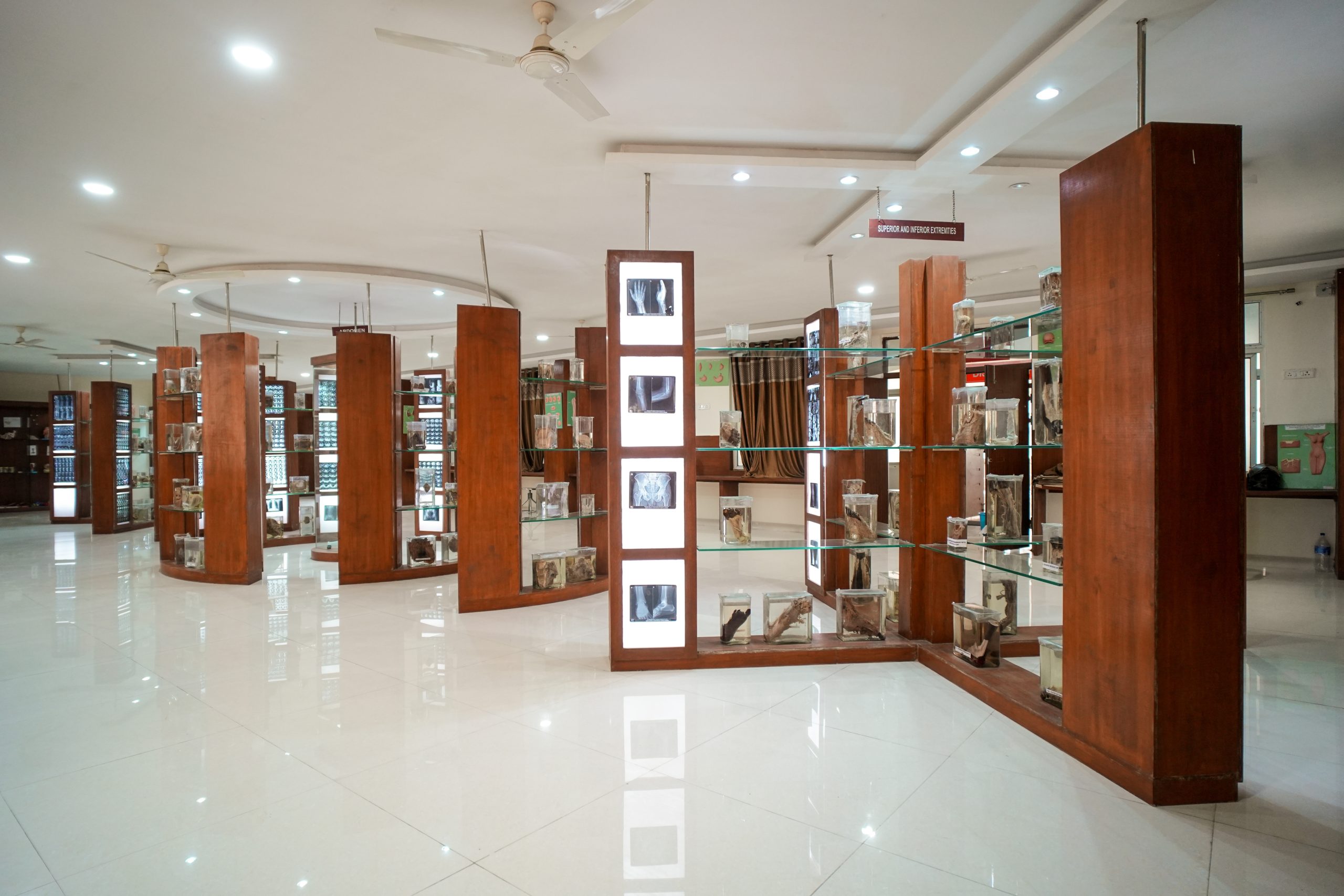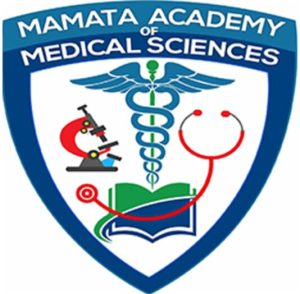



Laboratories
Labs & Museums are integral components of a college’s academic ecosystem, providing students with hands-on experiences and insights into real-world applications. These facilities complement classroom instruction by fostering curiosity, innovation, and a deeper understanding of academic concepts.
Laboratories: The Hub of Practical Learning
Laboratories in colleges are essential for applying theoretical knowledge through experiments, analysis, and research. They serve as a foundation for disciplines such as science, engineering, technology, and more.
Features of Mams Labs
Modern Equipment:
- State-of-the-art instruments and tools for conducting experiments and research.
- Dedicated spaces for specialized subjects like chemistry, biology, physics, engineering, and computer science.
Safety Standards:
- Proper ventilation systems, fire extinguishers, and first-aid kits.
- Safety protocols, protective gear, and supervision to ensure a secure environment.
Technology Integration:
- Advanced software, simulation tools, and digital platforms for experimentation.
- Access to data logging systems and high-performance computing setups.
Student-Centric Design:
- Ample workstations with adequate space for group and individual tasks.
- Storage facilities for lab materials and personal belongings.
Benefits of Laboratories
Enhanced Learning:
- Facilitates experiential learning by bridging the gap between theory and practice.
- Encourages critical thinking and problem-solving skills.
Innovation and Research:
- Provides a platform for students to engage in research projects and innovative experiments.
- Promotes collaboration between students and faculty.
Career Preparation:
- Equips students with practical skills and familiarity with industry-standard tools and methods.
